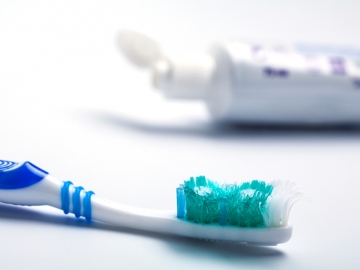Teen
- About
- Meet The Team
- Conditions
- Transition to Adult Congenital Cardiac Services
- Coming in to Hospital
- Surgery and Managing Your Discomfort
- Cardiac Catheter
- Ablation Procedure
- Pacemakers
- Looking after your oral health
- Lifestyle and Exercise Advice
- Periods, contraception and pregnancy
- Support
- Your Views
- Confidentiality and Consent
Looking after your oral health
-
What is infective endocarditis?
- Endocarditis is a rare infection of the inside the heart or the main arteries.
- It most commonly affects one or more of the heart valves but may also occur around holes between the heart chambers, at the site of abnormalities in the walls of arteries or at the site of previous heart or arterial surgery.
- It is a serious condition and can cause major damage to the heart valves and may even cause stroke or death.
- Most endocarditis occurs in patients already known to have heart abnormalities.
- Most patients with congenital heart disease are at increased risk of getting endocarditis.
- The only exceptions being isolated atrial septal defects or patients who have had completely curative treatment.

-
How might I get infective endocarditis?
• Endocarditis can only occur if bacteria get into the bloodstream (called bacteraemia). Although it is not possible to prevent all bacteria getting into the bloodstream, there are some things you can do to reduce the risk of getting endocarditis.
• Everybody carries bacteria in the mouth. These are usually harmless, but if the teeth or gums become diseased it becomes much easier for large numbers of bacteria to get into the blood, with the risk they may settle in the heart and cause endocarditis.
• Ear piercing, other body piercings or tattooing can lead to infections which may cause endocarditis. Patients at increased risk of endocarditis are safest avoiding these procedures. -

How might I feel if they were developing infective endocarditis?
• Patients with endocarditis develop a temperature and feel generally unwell, with symptoms very similar to having the flu.
• Flu is very common and usually resolves after about a week.
• Flu like symptoms with a temperature which persist for longer than a week should be reported to your cardiologist, not just your GP, so that specialist tests can be carried out to check for endocarditis.
-
What can I do to help avoid infective endocarditis?
• Good dental care and oral hygiene are important to reduce the risk of infective endocarditis.
• Your medical team will refer you child to have a specialist dental review .
• Please continue attending your family dentist on a regular basis. They will give advice on how to look after your teeth and gums.
• Tooth brushing twice a day, using a fluoride toothpaste
• A healthy diet avoiding sugary snacks and drinks.
-
How can I find a family dentist?
• Visit the NHS website which keeps a directory of local services https://www.nhs.uk/
• If your child requires urgent dental care and does not have a family dentist then call NHS 111What if I require dental treatment?
The safest way for any dental care to be carried out is generally using local anaesthetic ( an injection in the gum). Sometimes sedation, usually inhalation sedation ( gas and air), can also be used. If the care cannot be carried out with the you awake then a general anaesthetic (going to sleep) will be necessary.
When might I need to see a specialist/ consultant in Paediatric Dentistry?
Your dentist may be able to provide dental care for you at your family practice using local anaesthetic +/- inhalation sedation. If this is not feasible then your dentist will refer you to your local Specialist/Consultant in Paediatric Dentistry for specialist level care using local anaesthetic/ inhalation sedation /general anaesthetic.
Other issues relating to the risk of endocarditis
- Ear piercing, body piercings or tattooing can lead to infections which may cause endocarditis.
- Patients at increased risk of endocarditis are best avoiding these procedures.
